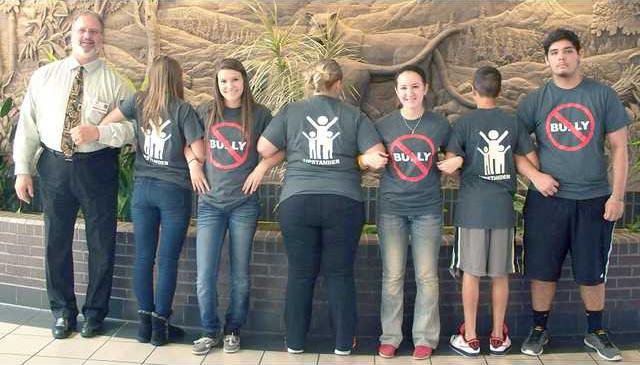What parents need to know about “Bully – The Movie” from commonsensemedia.org
Parents need to know that Bully is a no-holds-barred documentary that intimately portrays bullying victims’ daily lives. While it’s often heartbreaking and deals with tough issues like suicide, the movie addresses an incredibly important, timely topic – bullying – in a frank, relatable way that’s age appropriate for teens and relevant for middle schoolers if an adult is present to guide discussion. Bully has strong language (including a brutal, profanity-laden scene) but none of the swearing is gratuitous. Like it or not, it’s a realistic portrayal of what every middle schooler and older hears every day. This gives the film veracity and credibility with kids, and it will justifiably shock parents.
Bully’s most challenging material isn’t just the language, but the suicides. Seeing grieving parents and friends could potentially be upsetting to teens and preteens, so they should definitely watch with adults. Bully also addresses the concepts of cutting, physical abuse, and more, but in a way that presents the consequences as well as the behavior itself. Victims’ parents are generally portrayed as supportive and loving, while school administrators come off in a much less positive light. Ultimately, Bully encourages kids to stand up to bullies, not stand by, and reinforces the fact that everyone can make a difference when it comes to this essential issue.
A partnership of local agencies and businesses has come together to make a stand against a one of the most serious problems facing youth – bullying.
The documentary “Bully – The Movie” is being brought to Great Bend and will be shown at no charge with four showings on Saturday, Nov. 16, at Cinema 6 for all elementary, middle school, high school and college students, and parents and community members. Staggered starting times are 11 a.m., 11:15 a.m., 11:30 a.m., and 11:45 a.m., and the movie is 1 hour and 38 minutes in length.
The film is rated PG 13 and a parent or adult over 18 must accompany any student under age 13. Students over 13 are recommended to attend with their parents so they can discuss the issues following the movie.
There will be counselors and other adults available afterwards to discuss and answer questions as well.
The showing of the documentary is being sponsored by Teen Court, Cox Communications, The Center for Counseling and Consultation, the Suicide Prevention Task Force of Central Kansas Partnership, and Cinema 6.
“‘Bully—The Movie’ uncovers the fact that 13 million American kids are bullied every year at their schools, on their buses, at playgrounds, online and in every community in our country,” said CynDee Christiansen, Teen Court coordinator. “Some people believe that there is no hope of changing the conscience and culture that has allowed our children to be bullied, but local community members think differently.”
Directed by Sundance and Emmy award-winning filmmaker Lee Hirsch, the movie follows five children and their families over the course of a school year.
Christiansen received a grant from Cox Communications to offset the cost of the project.
Over the past couple years, Christiansen said she’s seen a lot of cases of battery and disorderly conduct come through Teen Court, many of which are related to bullying. This was the impetus to find an anti-bullying program.
“Every community wants to tout itself as a safe place to raise families where each child is encouraged and allowed to reach their full potential,” she said. “One way to help make that happen is to recognize and change the bullying culture that we see in our own back yard.”
The film is a chance for every parent, teacher, counselor and community member to make a difference and change what happens around them. “We can examine our own history connected to bullying, past tolerance of bullying behaviors, and how to make significant changes in our community,” said Janel Rose of the Barton County Health Department and the Suicide Prevention Task Force of Central Kansas Partnership.
Youth will be encouraged to join the anti-bullying movement by taking a pledge to not be a bully and become an “upstander” – the person who knows what’s happening is wrong and does something to make things right, Rose said.
Youth can:
• Not join in the bullying
• Support the victim in private—show your concern and offer kindness
• Stand with the victim and say something
• Mobilize others to join in and stand up to the bully
• Befriend the victim and reach out to him/her in friendship
• Alert an adult
An educators’ toolkit and DVD will also be available from Juvenile Services to schools and community groups for showings and discussion beginning in January. The kit is designed to incite honest, meaningful dialogue that can lead to changes in behavior among youth and adults. Partners who contributed to the kit include Facing History and Ourselves, The Harvard Graduate School of Education, Not In Our School, Love is Louder, the National Center for Learning Disabilities and Common Sense Media.





